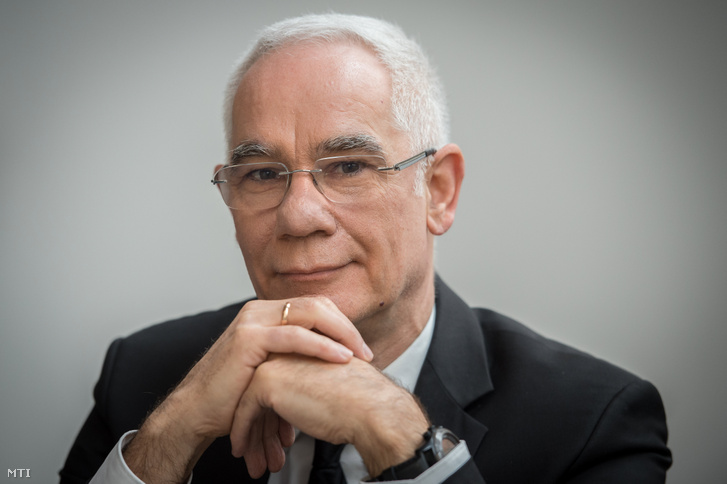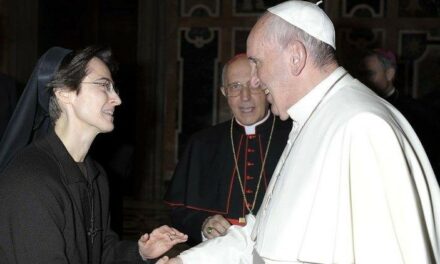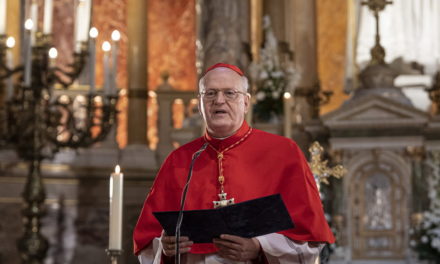The message of Christmas is that God still hasn't given up on man, and he invites you to "don't give up on him either!" - said Zoltán Balog, pastor president of the Synod of the Hungarian Reformed Church on the occasion of the holiday.
The Reformed bishop talked about: the holiday always comes, regardless of whether there is war or peace, whether we are rich or poor. But Christmas is more important than anything else for those who are in trouble, because it tells us that God "unchangeably loves us".
The holiday opens the door to God in a person's life, you can realize that God's love is constant, you can always connect to it. If this message appeals to even one person, then the "fuss" surrounding the holiday, which rather obscures its essence, is already worth it.
Zoltán Balog added: the human endeavor is to tone down the provocative message of Christmas. In a world of tanks, banks, and epidemics, telling a vulnerable child that he is God's messenger is a contradiction that people try to weaken, so they turn it into a Christmas romance. While Jesus was also born into a world where children were murdered in order to destroy him.
"Our job is not to allow the radical and even brutal message of the birth of Jesus to be covered with angel hair."
While it is important to experience love for each other, there should always be the provocative message that God "still, despite everything" has not given up on us.
Zoltán Balog said: the Reformed Church is paying special attention to Transcarpathia this Christmas. The purpose of the fundraiser of the Hungarian Reformed Charity Service entitled "Star of Bethlehem" was to provide the light of the holiday for the people of Transcarpathia who suffer from regular power outages. As part of the action, the charity service bought and delivered candles, flashlights, generators and solar lamps to communities and families in Transcarpathia.
In addition, the church organized a movement to help the separated Transcarpathian families meet.
In church halls, churches, and family homes, family members who previously fled to Hungary or those who stayed in Subcarpathia and traveled to Hungary for the holiday can meet.
The Reformed bishop pointed out that the Hungarian Reformed Church has a very close relationship with Transcarpathia, each of the 109 Transcarpathian Reformed churches has a sister church in Hungary. "This is an old, traditional relationship, but not only historical, but experienced on a daily basis." Therefore, the war mobilized the Reformed communities in Hungary to an unprecedented extent. In the last 33 years, such willingness to sacrifice has not been manifested within the Reformed Church. In addition, sister churches abroad - Northern Ireland, Scotland, Holland, Switzerland, Germany, America, Japan, Korea - also offered a lot of money, which the Hungarian church sent to Transcarpathia.
Our job is to awaken people's sense of responsibility, that those who have more should make greater sacrifices, he said. This happened during the aid to Transcarpathia, and now it must be implemented in Hungary as well.
He said that the church has decided not to close its institutions that serve the poor, elderly, and sick people because of rising utility bills, and that its communities help each other on a national level.
Among the important events of the past period, Zoltán Balog spoke about the caring parishes established in the Dunamelléki Church District, and the pastoral care of small rural communities. "As long as there is a person who counts on the service of our church, we will not let him down," he said.
At the same time, there are parishes that are no longer able to provide church services independently. If these communities are willing to associate, the church district provides the necessary means for this. For example, they get minibuses, so every week there will be a service in a different place, which will no longer be attended by 5-6 people, but by 35, with a reception after the service. In this way, the pastors are not forced to serve in 5-6 locations every Sunday, he said, and expressed his hope that the structural transformation will become a real community building.
Regarding the census that took place in the fall, Zoltán Balog said that belonging to the church can be compared to concentric circles. In the innermost circle there are those who go to church regularly, in the next there are those who only go to church on major holidays, in the even wider circle those who only seek contact with the church during important life events - christenings, weddings, funerals - and finally there are those who are culturally or just they are religious in their genes, who have some idea that belonging to the church once existed in their family, but it hardly means anything to them.
During the census, the aim of the church was to address those in the outer circles, so that they could create a real one from belonging to the apparent community. This is a double invitation: those who declared themselves Reformed in the census, although the church does not know about them, actually sent an anonymous invitation to the church saying "I'm here, you could contact me", and in response "we will try to find them and contact them".
An important area of address is the presence of the Reformed voice in the world of public life, culture, education and care for the elderly. According to his assessment, it is also due to this public presence that it is growing dynamically, in the last ten years the number of those who donate a percentage of their taxes to the Reformed Church has doubled, and who are now more than the number of people the church counts as church members in the strict sense, with the right to vote lasts
We also want to address these people, added Zoltán Balog.
MTI
Featured image: Csilla Cseke / MTI












